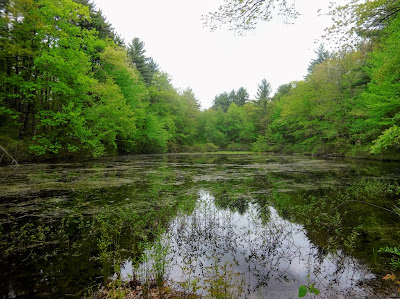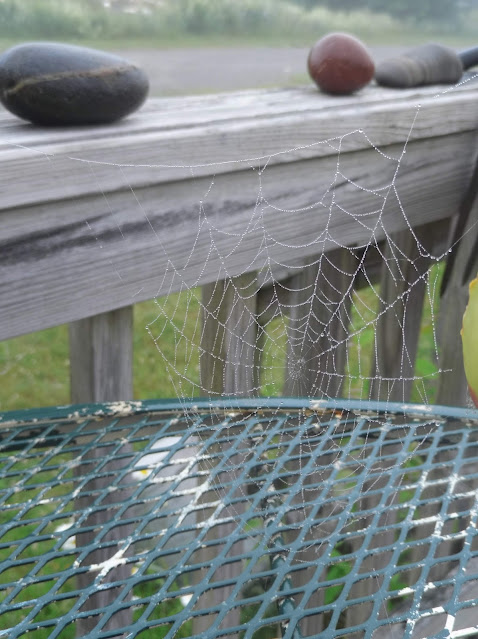How You Care for the Dead Tells the World Everything About Who You Really Are
How You Care for the Dead Tells the World Everything
About Who You Really Are
Somewhere, perhaps among the living,
a bell began pealing,
insidious, solemn, obsessive,
and there was no one left to tell
the echo from the final stroke.
D. Nurske
A
Path in Grace
It seems like your greatest
betrayal, the final abandonment
there’s no coming home from.
All along you allowed her
to believe you’d be beside her
in the end and the stone even
says so. Going on
fourteen
years now, her being dead
has to seem, still to this day,
like a freedom four decades
in the making. Your
name
has been filling with small bits
of seasonal detritus, random
as the wind. Garden
dirt.
Birch leaves. Blueberry
blossoms
dried on the bushes when
the bees are too few.
The face
of it is washed out some by
the wet weather, or a polish
of fog on the glossy parts.
Her name, her age.
When you
both were married. I
think
maybe what’s hardest for me
to believe is that you’d rather
be with strangers, even dead,
cremated and stuffed into
a different ground.
It’s your call.
We all have our own romances
with the dead and buried.
I don’t believe she waits for you
anymore, not in that sense,
and ultimately we all go
back to the earth, right? I want
to believe that for your sake.
But it's like
when Sammy shot himself
on Mother’s Day in his mother’s
bedroom. He was her twin
sister’s only son.
The church
refused him a consecrated plot.
Still, her mother, having bought
two spots in the Protestant
(they had their own lapses
with dogma) cemetery, allowed
him his small comfort of family
under a quiet tree, a place
shunning all ambiguity.
His name.
His dates. He’s
there. They’re
there. Someone cared
enough not to abandon him
to his own
potter’s field, alone under
a stone. Or
worse. No stone.
I bet you think it doesn’t
matter. Or, no. I bet you
think it does matter, which makes
you want something grander
something you think
you deserve. That you’ll
be
visited there. And no
one will know
you were abandoning
again and finally, after all
these years of abandoning
(and they’ll praise you
for your service, and not know,
how could they know, being strangers)
sixty miles away the ashy bones
of your wife repose as best
as you could set and left them.
To me, the least you could do
is disinter her and bring her
with you. But you won’t
do that.
When we’re all gone, her last
place in this earth will come up
under no scrutiny or benevolence.
No one will pass or know to,
being at the edge of the woods
you dug her into, that stone
sunk deep and in time obliterated.
Her final end.
Hidden.
Like she never mattered.
Or even existed.




Comments
Post a Comment